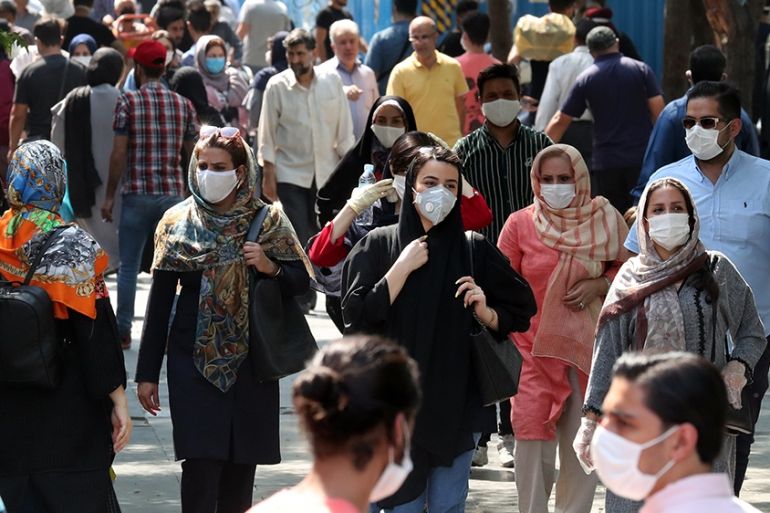US sanctions ‘ruining lives’, Iran tells United Nations court
US sanctions causing record drop in trade, a near-doubling of food prices, and severe effects on the health system.

Iran urged the UN’s top court on Wednesday to hear its bid to overturn US nuclear sanctions, saying they were destroying the Iranian economy and “ruining millions of lives”.
The International Court of Justice (ICJ) in The Hague is hearing arguments this week from Tehran and Washington before deciding whether it has jurisdiction to deal with the case.
Iran dragged the United States to the ICJ in 2018 when President Donald Trump pulled the US out of a landmark deal limiting Iran’s nuclear programme and reimposed sanctions.
Tehran’s representative Hamidreza Oloumiyazdi told the court by video link the sanctions were a “clear breach” of a 1955 Treaty of Amity between Iran and the US.
“The US measures and the underlying policy of ‘maximum pressure’ disregard the very foundation of international law,” Oloumiyazdi said.
He said the sanctions were causing “hardship and suffering”, including a record drop in Iran’s trade, a near-doubling of food prices, and “severe” effects on the health system.
|
|
“All that matters now for the US administration is whether its measures are succeeding in destroying the Iranian economy and ruining the lives of millions of Iranians,” Oloumiyazdi added.
Meanwhile, Secretary of State Mike Pompeo insisted Wednesday the United States will enforce new “UN” sanctions on Iran starting next week, despite overwhelming consensus that Washington is out of bounds.
“The United States will do what it always does. It will do its share as part of its responsibilities to enable peace, this time in the Middle East,” Pompeo told a joint news conference with British Foreign Secretary Dominic Raab.
“We’ll do all the things we need to do to make sure that those sanctions are enforced.”
‘Grave threat’
The US urged the ICJ to reject the case on Monday, saying the sanctions have nothing to do with the friendship treaty, which predated the 1979 Islamic Revolution in Iran and subsequent severing of ties between the two countries.
It argued the sanctions were necessary because Iran posed a “grave threat” to international security.
Washington formally ended the Treaty of Amity in late 2018 after the ICJ ordered it to ease sanctions on humanitarian goods as an emergency measure while the overall lawsuit is dealt with.
A decision on jurisdiction by the ICJ, which was set up after World War II to rule in disputes between nations, could take several months, while a final ruling would take years.
The 2015 nuclear deal – involving the five permanent members of the UN Security Council – the United Kingdom, China, France, Russia and the US, plus Germany – has hung by a thread since Trump pulled out.
|
|
The accord promises Iran sanctions relief in exchange for curbing its nuclear programme, but Tehran has stepped up nuclear activities since last year after the US reimposed sanctions.
The Trump administration also vowed on Wednesday to impose the “full force” of US sanctions on any international arms manufacturers who deal with Iran once Washington sees a United Nations arms embargo on Tehran reimposed.
Elliott Abrams, US special envoy on Iran, issued the warning in a briefing with reporters hours after Pompeo said the United States would return to the UN to try to reinstate sanctions on Iran next week, despite a lack of support within the UN Security Council.
The council resoundingly rejected a US attempt on August 14 to extend an international arms embargo on Iran beyond its expiration in October, but the United States is pressing ahead with its efforts based on its own legal interpretation.